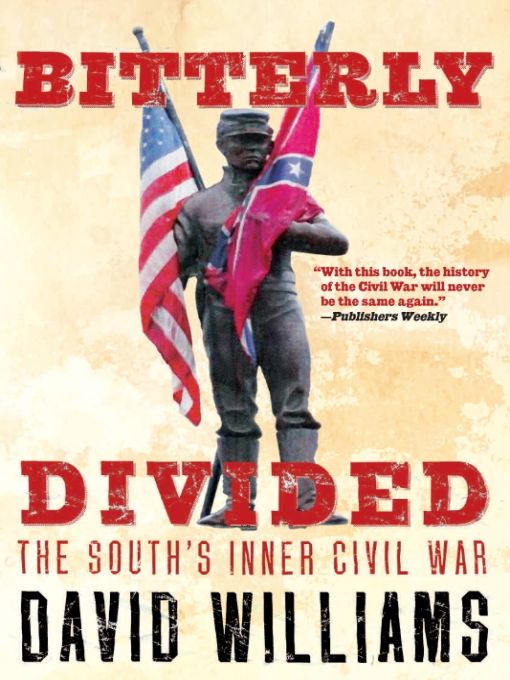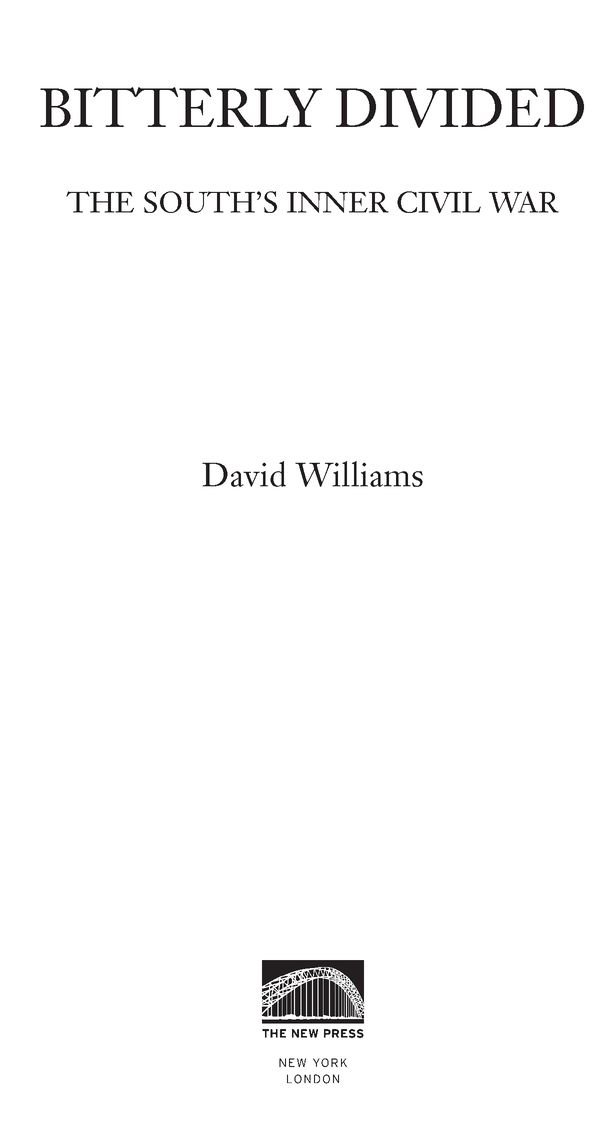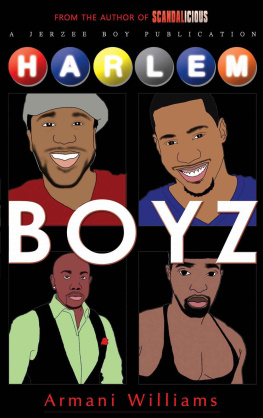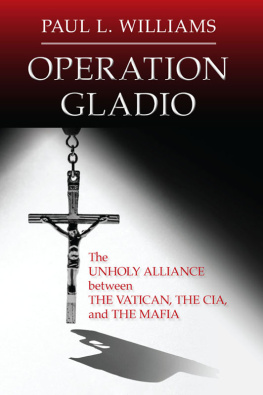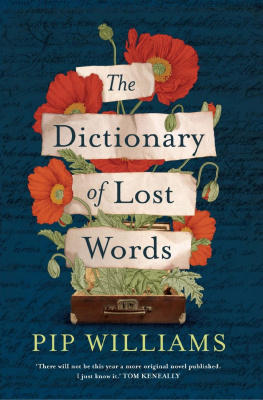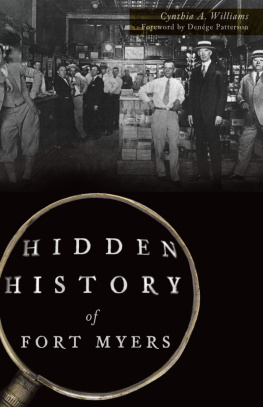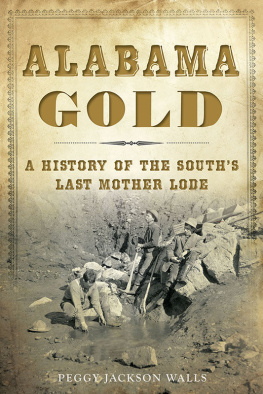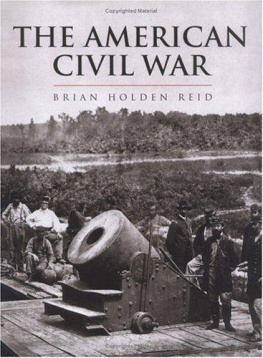Table of Contents
ALSO BY DAVID WILLIAMS
A Peoples History of the Civil War: Struggles for the Meaning of Freedom
Plain Folk in a Rich Mans War: Class and Dissent in Confederate Georgia (with Teresa Crisp Williams and David Carlson)
Johnny Rebs War: Battlefield and Homefront
Rich Mans War: Class, Caste, and Confederate Defeat in the Lower Chattahoochee Valley
The Georgia Gold Rush: Twenty-Niners, Cherokees, and Gold Fever
Gold Fever: Americas First Gold Rush
(with Ray C. Rensi)
For Teresa Forever and Always
Introduction
It is a certain fact that the Southern people are fast becoming as bitterly divided against each other as the Southern and Northern people ever has been. At the height of the Civil War, while battles raged on distant fields, a Georgia man named Samuel Knight wrote these words to Governor Joseph E. Brown as he outlined the many ways in which southerners themselves were working against the Confederacy. He concluded his observations by insisting: I have not written this letter to exaggerate these things. I only write such as I know to be true.
Knight saw clearly what generations of historians have too often neglectedthat during its brief existence, the Confederacy fought a two-front war. There was, of course, the war it waged with the North, the war so familiar to almost every schoolchild. But, though school-children rarely hear of it, there was another war. Between 1861 and 1865, the South was torn apart by a violent inner civil war, a war no less significant to the Confederacys fate than its more widely known struggle against the Yankees.
From its very beginnings, the Confederacy suffered from a rising tide of internal hostility. Ironically, it was a hostility brought on largely by those most responsible for the Confederacys creation. Planters excused themselves from the draft in various ways, then grew far too much cotton and tobacco and not nearly enough food. Soldiers went hungry, as did their families back home. Women defied Confederate authorities by staging food riots from Richmond, Virginia, to Galveston, Texas. Desertion and draft evasion became commonplace. By 1864, the draft law was nearly impossible to enforce, and two-thirds of the Confederate army was absent with or without leave. Many deserters joined guerrilla bandstory (anti-confederate) or layout (deserter and draft-resister) gangs, which controlled vast areas of the southern countryside.
Southern Indians too, from the seaboard states to Indian Territory (now Oklahoma), though allied by most of their tribal governments with the Confederacy, increasingly resisted Confederate authority. And southern blacks made the force of their opposition to the Confederacy felt. From the wars outset, in what W.E.B. Du Bois called a general strike against the Confederacy, blacks resisted by subtle and overt means, undermining the Confederate war effort at every opportunity.
The Souths inner civil war had deep roots in the antebellum period. Many southern whites, like North Carolinas Hinton Rowan Helper, saw plain folk as impoverished by the slave system. Slaves, too, like Frederick Douglass, were becoming more difficult to control. Though Helper and Douglass were exceptional cases, both represented a rising tide of resentment and resistance. By 1860, slaveholders worried that although Abraham Lincoln was a direct threat only to slaverys expansion, his election to the presidency might give encouragement to southern dissenters and resisters, making control all the more difficult. One planter asked nervously, If the poor whites realized that slavery kept them poor, would they not vote it down? Some feared that there might soon be an Abolition party in the South, of Southern men. Another frankly admitted, I mistrust our own people more than I fear all of the efforts of the Abolitionists. Such fears among slaveholders, though publicly unacknowledged, were a major driving force behind the secession movement.
But how could a slaveholders republic be established in a society in which slaveholders were a minority? A third of the Souths population was held in bondage and could hardly be relied upon to support a government built on slavery. Of the Souths free population, three-fourths of whom owned no slaves, most made it clear in the winter 1860-61 elections for convention delegates that they opposed secession. Nevertheless, state conventions across the South, all of them dominated by slaveholders, in the end ignored majority will and took their states out of the Union. One Texas politician conceded that ambitious colleagues had engineered secession without strong backing from the mass of the people. A staunch South Carolina secessionist admitted the same: But whoever waited for the common people when a great move was to be madeWe must make the move and force them to follow.
Still, there was some general enthusiasm for the war among common whites in the wake of Lincolns call for volunteers to invade the South. Whatever their misgivings about secession, invasion was another matter. And, despite Lincolns promise of noninterference with slavery, fear of Negro equality, as historian Georgia Lee Tatum put it, caused some of the more ignorant to rally to the support of the Confederacy. But southern enlistments declined rapidly after First Manassas, or Bull Run, as Yankees called the battle. Men were reluctant to leave their families in the fall and winter of 1861-62, and many of those already in the army deserted to help theirs.
The Confederacys response to its recruitment and desertion problems served only to weaken its support among plain folk. In April 1862, the Confederate Congress passed the first general conscription act in American history. But men of wealth could avoid the draft by hiring a substitute or paying an exemption fee. Congress also made slaveholders owning twenty or more slaves automatically exempt from the draft. This twenty-slave law was the most widely hated act ever imposed by the Confederacy, especially for poor soldiers already in the ranks. Said Private Sam Watkins of Tennessee, It gave us the blues; we wanted twenty negroes. Negro property suddenly became very valuable, and there was raised the howl of rich mans war, poor mans fight. He continued, From this time on till the end of the war, a soldier was simply a machine. We cursed the war... we cursed the Southern Confederacy.
To make matters worse, planters devoted much of their land to cotton and tobacco, while soldiers and their families went hungry. During the course of the war, planters committed the manpower equivalent of the entire Confederate army to cotton and tobacco production. In the spring of 1862, a southwest Georgia man wrote to Governor Joe Brown about planters growing too much cotton, begging him to stop those internal enemies of the country, for they will whip us sooner than all Lincolndom combined could do it. Thousands of planters and merchants defied the Confederacys cotton export policy and smuggled it out by the ton. Most states passed laws limiting slaveholders production of nonfood items, but enforcement was lax and planters ignored the law. With prices on the rise, many cotton producers and dealers were getting richer than ever. Some openly bragged that the longer the war went on, the more money they made.
The inevitable result of cotton and tobacco overproduction was a severe food shortage that hit soldiers families especially hard. With their husbands and fathers at the front and impressment officers taking what little food they had, it was difficult for soldiers wives to provide for themselves and their children. Planters had promised to keep soldiers families fed, but they never grew enough food to meet the need. Much of what food they did produce was sold to speculators, who hoarded it or priced it far beyond the reach of most plain folk.

